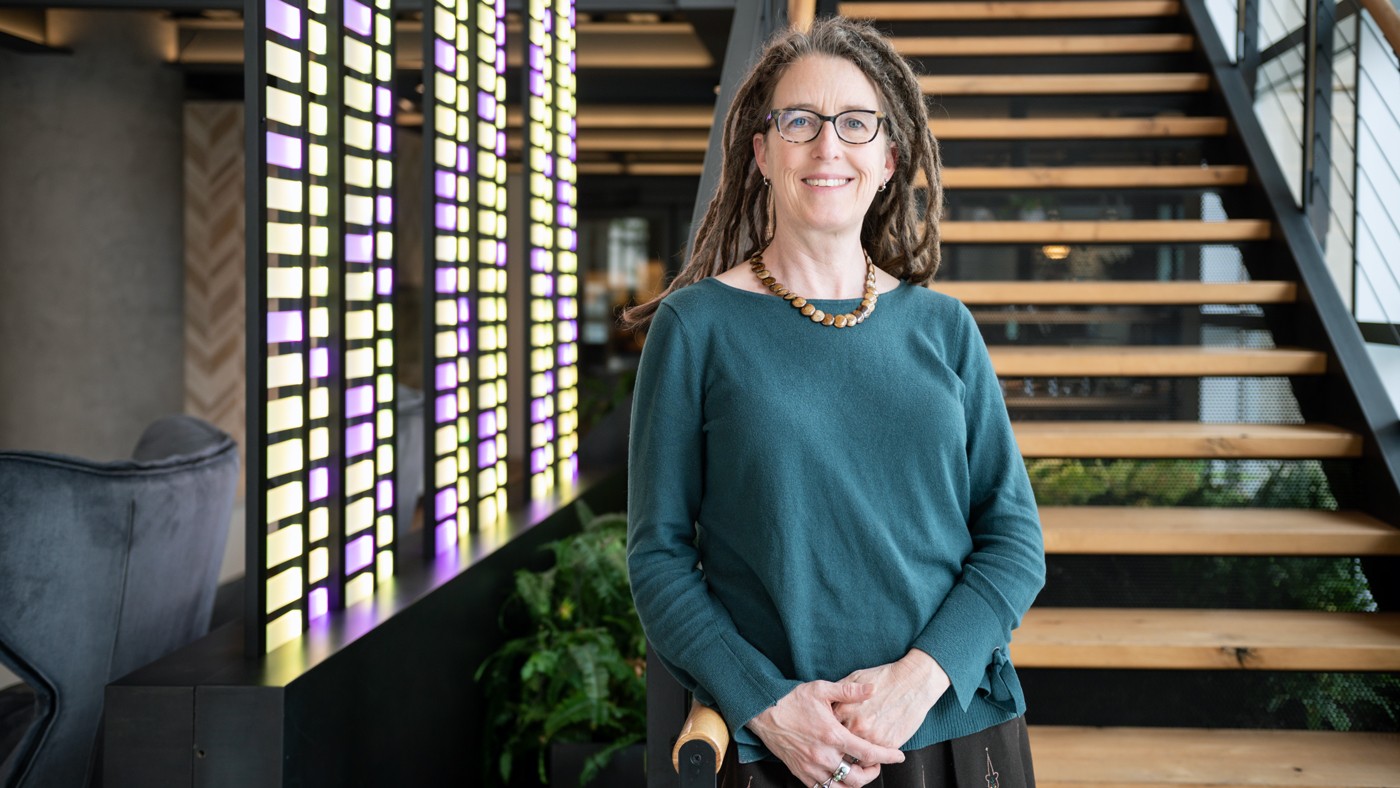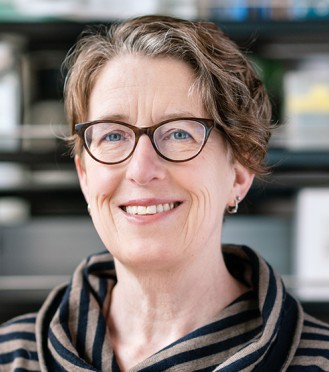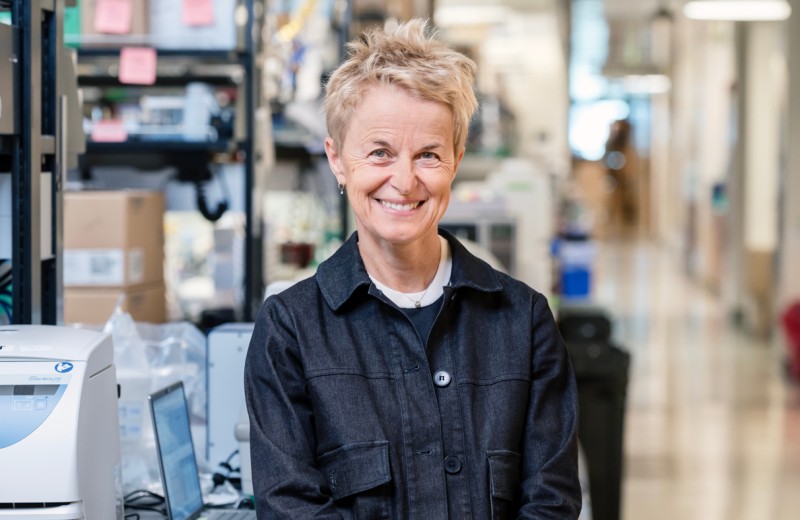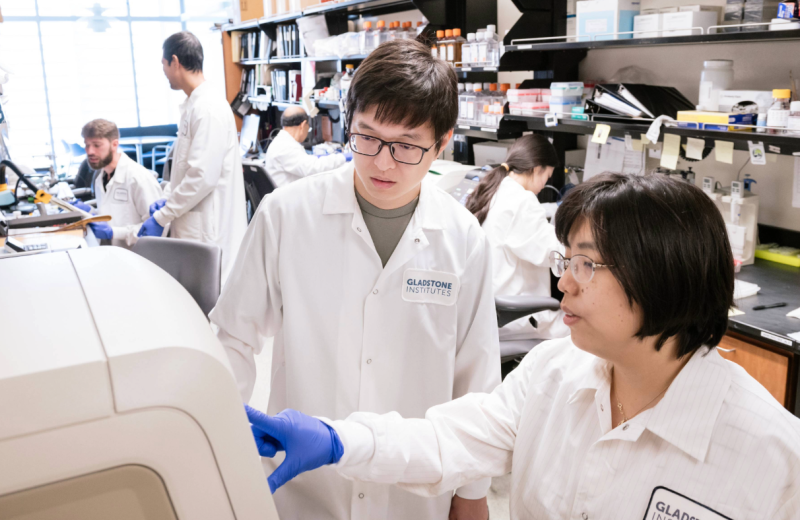Gladstone NOW: The Campaign Join Us on the Journey✕

Katie Pollard receives this distinction for her contributions to the expanding field of data science.
Katie Pollard, PhD, has been named the L.K. Whittier Director of the Institute of Data Science and Biotechnology at Gladstone Institutes. With this new distinction added to her director title—which she has held since the institute’s foundation in 2018—the L. K. Whittier Foundation recognizes Pollard’s many contributions to the expanding field of data science applied to biomedical research.
“Our ties to the Whittier Foundation are strong and go back many years,” says Gladstone President Deepak Srivastava, MD. “We are proud to acknowledge their generous and long-standing support of this institute, and we commend Katie for this well-deserved recognition of her remarkable contributions to science.”
The Whittier Foundation is a Los Angeles-based non-profit organization that supports innovation in education, science, health, and medicine. The foundation’s past donations have enabled the recruitment of several talented investigators to Gladstone, including Jennifer Doudna, PhD, and Seth Shipman, PhD, both investigators in the Institute of Data Science and Biotechnology.
“This named directorship recognizes the Whittier Foundation’s immense impact on Gladstone’s research. I am thrilled to add the name of this generous donor to my title, and I’m thankful for their support.”
Pollard is widely known for her discovery of stretches of the human genome sequences that evolved faster in humans than in other primates. These sequences, known as human accelerated regions, may explain the rapid emergence of brain capabilities unique to humans, but also their vulnerability to neurological diseases.
She is also a pioneer in the design of computational tools to identify components of the human microbiome, which is the myriad of microbes that inhabit the human body and contribute to our health and diseases. Her team uncovered a novel strain of gut bacteria, and the mechanisms by which different microbes colonize the gut. These mechanisms could be targeted to improve health or treat diseases.
In the past few years, Pollard, in collaboration with Gladstone colleagues, has turned her computational skills to understand fundamental features of the human genome, such as epigenetic marks that control gene activity or sequences that underpin the three-dimensional folding of DNA inside the cell’s nucleus. Her lab has also contributed to the discovery of combinations of genetic variants that cause heart disease.

Pollard has made many contributions to the field of data science, advocates for close collaborations between data scientists and experimental biomedical researchers, and strongly supports women in science.
Pollard is a strong advocate for close collaborations between data scientists and experimental biomedical researchers, a philosophy that is illustrated in her stewardship of the Institute of Data Science and Biotechnology. She is also a celebrated mentor and staunch supporter of women in science.
“This named directorship recognizes the Whittier Foundation’s immense impact on Gladstone’s research,” says Pollard. “I am thrilled to add the name of this generous donor to my title, and I’m thankful for their support.”
Pollard is also chief of the division of bioinformatics in the Department of Epidemiology and Biostatistics at UC San Francisco, as well as a Chan Zuckerberg Biohub investigator. In October 2022, she was elected to the National Academy of Medicine, one of the highest honors in health and medicine. She is a Fellow of the American Institute for Medical and Biological Engineering, the California Academy of Sciences, and the International Society for Computational Biology, as well as a member of the American Society of Human Genetics and the American Statistical Association.
One Person’s Final Gift to Science Gets Us Closer to an HIV Cure
One Person’s Final Gift to Science Gets Us Closer to an HIV Cure
A new documentary follows Jim Dunn’s end-of-life decision to donate his tissues to HIV research.
Institutional News HIV/AIDS Infectious Disease Roan LabBeyond Viruses: Expanding the Fight Against Infectious Diseases
Beyond Viruses: Expanding the Fight Against Infectious Diseases
The newly renamed Gladstone Infectious Disease Institute broadens its mission to address global health threats ranging from antibiotic resistance to infections that cause chronic diseases.
Institutional News News Release Cancer COVID-19 Hepatitis C HIV/AIDS Zika Virus Infectious DiseaseFueling Discovery at the Frontiers of Neuroscience: The NOMIS-Gladstone Fellowship Program
Fueling Discovery at the Frontiers of Neuroscience: The NOMIS-Gladstone Fellowship Program
The NOMIS-Gladstone Fellowship Program empowers early-career scientists to push the boundaries of neuroscience and unlock the brain’s deepest mysteries.
Institutional News Neurological Disease Mucke Lab NOMIS




